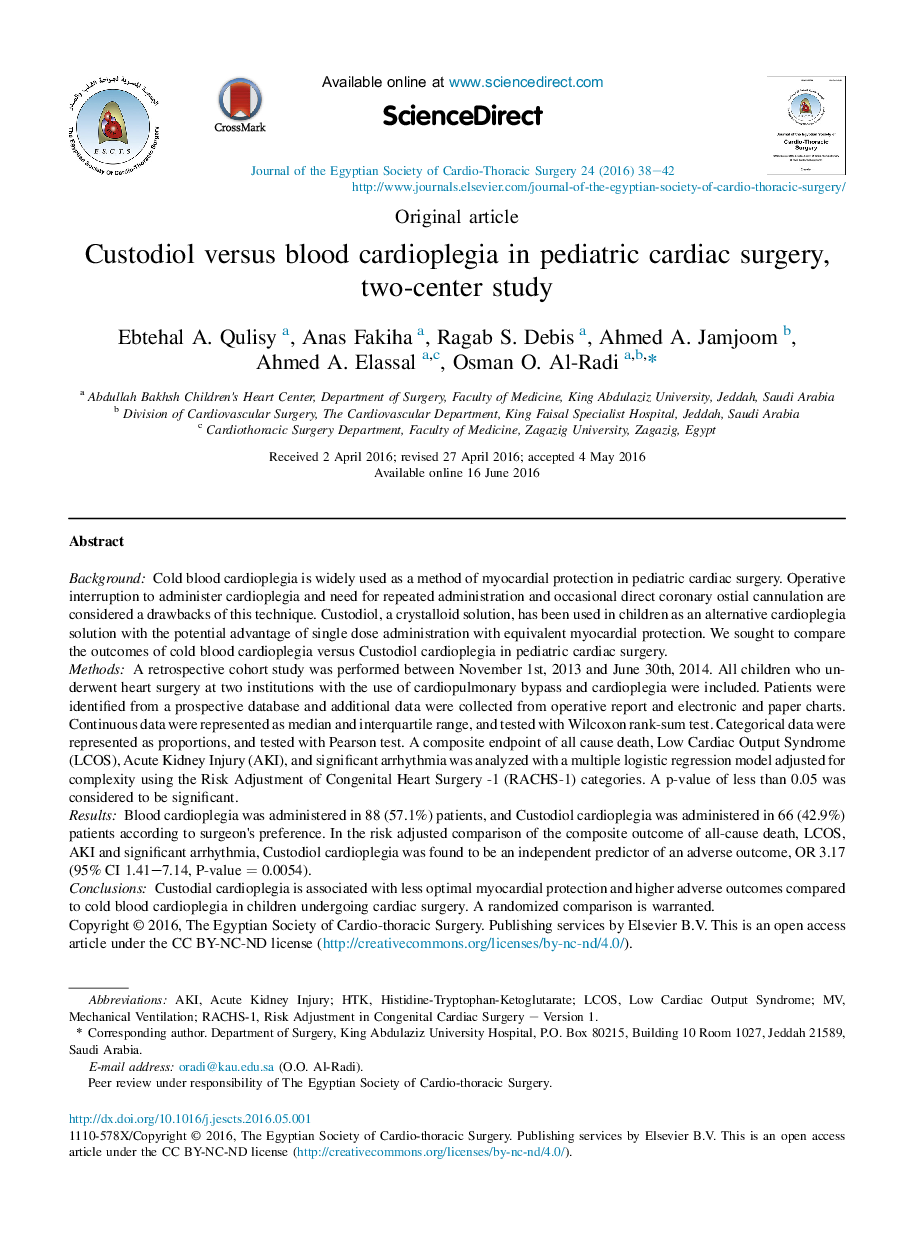| Article ID | Journal | Published Year | Pages | File Type |
|---|---|---|---|---|
| 2967278 | Journal of the Egyptian Society of Cardio-Thoracic Surgery | 2016 | 5 Pages |
BackgroundCold blood cardioplegia is widely used as a method of myocardial protection in pediatric cardiac surgery. Operative interruption to administer cardioplegia and need for repeated administration and occasional direct coronary ostial cannulation are considered a drawbacks of this technique. Custodiol, a crystalloid solution, has been used in children as an alternative cardioplegia solution with the potential advantage of single dose administration with equivalent myocardial protection. We sought to compare the outcomes of cold blood cardioplegia versus Custodiol cardioplegia in pediatric cardiac surgery.MethodsA retrospective cohort study was performed between November 1st, 2013 and June 30th, 2014. All children who underwent heart surgery at two institutions with the use of cardiopulmonary bypass and cardioplegia were included. Patients were identified from a prospective database and additional data were collected from operative report and electronic and paper charts. Continuous data were represented as median and interquartile range, and tested with Wilcoxon rank-sum test. Categorical data were represented as proportions, and tested with Pearson test. A composite endpoint of all cause death, Low Cardiac Output Syndrome (LCOS), Acute Kidney Injury (AKI), and significant arrhythmia was analyzed with a multiple logistic regression model adjusted for complexity using the Risk Adjustment of Congenital Heart Surgery -1 (RACHS-1) categories. A p-value of less than 0.05 was considered to be significant.ResultsBlood cardioplegia was administered in 88 (57.1%) patients, and Custodiol cardioplegia was administered in 66 (42.9%) patients according to surgeon's preference. In the risk adjusted comparison of the composite outcome of all-cause death, LCOS, AKI and significant arrhythmia, Custodiol cardioplegia was found to be an independent predictor of an adverse outcome, OR 3.17 (95% CI 1.41–7.14, P-value = 0.0054).ConclusionsCustodial cardioplegia is associated with less optimal myocardial protection and higher adverse outcomes compared to cold blood cardioplegia in children undergoing cardiac surgery. A randomized comparison is warranted.
